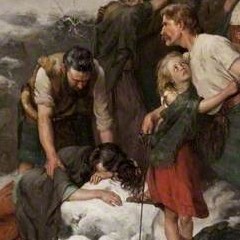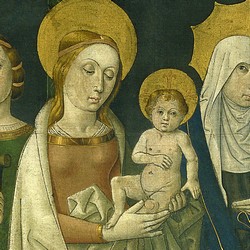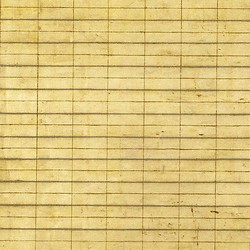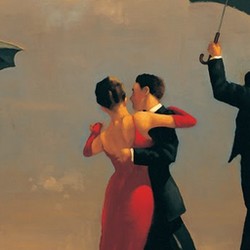- Details

We can’t help believing on the pseudo-romantic idea that true works of art are those made under dictation from a muse: those images of the writer writing a whole novel without rising from his chair or the painter that leaves his studio with tangled hair and a masterpiece on the easel. I'm not saying that there are no works created like that, but let’s face it... cinema has done a lot of damage. This pseudo-romantic idea has a corollary: the underrating of commissioned works. How could be art something brought about by a contract? And we forget that artists also enjoy eating regularly and to warm up in winter [...]
- Details

My dearest, happy New Year filled with music!
To finish our Christmas season, I'm sharing a song by Peter Cornelius, a composer who wrote several song cycles with religious themes, usually with his own texts. Four years ago I talked about his Weihnachtslieder, op. 8, which includes a very well-known song, Die Könige. Today we're listening to the next song, Simeon, which tells the presentation of Jesus at the Temple; it was customary for the parents to take the children at the temple forty days after their birth and to offer for them a pair of turtle-doves. The Christian calendar celebrates [...]
- Details

Last week I shared a Polish Christmas carol, a traditional one, arranged by Witold Lutosławski. The second Christmas song of this year is also traditional, but this time I'm not going so far, I stay at home: we're listening to El cant dels ocells (The song of the birds). I chose this piece of music especially for you, the readers of the English version of the post; the Catalan readers know it by heart but I thought that maybe you are not so familiar with it.
- Details

I hope you got into the Christmas spirit because today we're beginning the usual short series of three posts with songs related to these days; The next two will be in short format and after the Three Kings Day we will go back to normal.
I heard the songs I'm talking today in Catalunya Música a Christmas Eve, a couple of years ago. They caught my attention and I jotted down them in my notebook; They were the Dwadzieścia polskich kolęd (Twenty Polish Christmas Carols) by Witold Lutosławski [...]
- Details

Imagine the last scene in a "made in Hollywood" movie: the main character is a singer who had many ups and downs in his life; now, he is on the platform of a crowded concert hall. Our man sings a piece of music that ends in a long fortissimo high note and the audience rises and gives him a standing ovation, ignoring the last chords of the piano. What would be the soundtrack of this scene? It could be Ein Traum, by Edvard Grieg, a song that has all the necessary elements to attract even the more reluctant cinema spectators, while the song lovers enjoy it from the first note.













